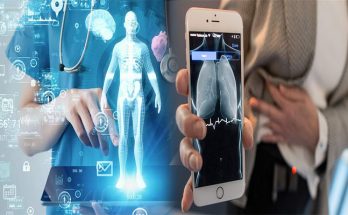Technological advancements have revolutionized the healthcare industry, bringing about significant improvements in patient outcomes, access to care, and quality of services. From innovative medical devices to data analytics and telemedicine, technology plays a crucial role in enhancing patient care and treatment outcomes in healthcare settings. In this article, we will explore the ways in which technology is improving patient outcomes and transforming the delivery of healthcare services.
Remote Monitoring and Telehealth
One of the key ways in which technology is improving patient outcomes in healthcare settings is through remote monitoring and telehealth solutions. Telehealth platforms and mobile health apps enable patients to connect with healthcare providers remotely, access medical consultations, and receive virtual care services from the comfort of their homes. Remote monitoring devices, such as wearable sensors and digital health trackers, allow healthcare providers to monitor patients’ vital signs, medication adherence, and treatment progress in real-time, providing early detection of health issues and proactive interventions to improve outcomes for chronic conditions such as diabetes, hypertension, and heart disease.
Electronic Health Records (EHR)
The adoption of electronic health records (EHR) has streamlined communication, data sharing, and care coordination among healthcare providers, leading to more efficient and effective healthcare delivery. EHR systems store patients’ medical history, test results, treatment plans, and medication information in digital format, allowing for secure and instant access to critical health information across different healthcare settings. By reducing errors, duplication of tests, and delays in care, EHR systems improve clinical decision-making, enhance patient safety, and ensure continuity of care, ultimately leading to better patient outcomes and a higher quality of healthcare services.
Medical Imaging and Diagnostics
Technological advancements in medical imaging and diagnostics have transformed the way healthcare providers diagnose and treat medical conditions, leading to more accurate and timely interventions that improve patient outcomes. Advanced imaging technologies, such as MRI, CT scans, and ultrasound, provide detailed insights into patients’ internal structures, enabling physicians to detect abnormalities, tumors, and other health issues with greater precision and sensitivity. Additionally, artificial intelligence (AI) algorithms and machine learning models are being employed to analyze medical imaging data, identify patterns, and support diagnostic decision-making, leading to faster and more accurate diagnoses and treatment plans that enhance patient outcomes and reduce healthcare costs.
Personalized Medicine and Precision Oncology
The advent of personalized medicine and precision oncology has revolutionized cancer treatment by tailoring therapies to individual patients’ genetic makeup, lifestyle factors, and disease characteristics. Through genetic testing, biomarker analysis, and molecular profiling, healthcare providers can identify specific genetic mutations and biomarkers associated with cancer, allowing for targeted therapies and personalized treatment plans that improve and prolong patients’ lives. Precision oncology approaches enable oncologists to select the most effective treatments, predict patients’ responses to therapy, and monitor treatment outcomes in real-time, leading to better survival rates, reduced side effects, and improved quality of life for cancer patients.
Technology plays a vital role in improving patient outcomes in healthcare settings by enabling remote monitoring, telehealth services, electronic health records, advanced medical imaging, and personalized medicine approaches. By harnessing the power of technology to enhance clinical care, data-driven decision-making, and patient engagement, healthcare providers can deliver more personalized, efficient, and effective care that leads to better health outcomes, improved patient satisfaction, and a higher standard of care for patients worldwide. As technology continues to evolve and innovate in the healthcare sector, the potential to further enhance patient outcomes and transform the delivery of healthcare services remains limitless, offering new opportunities to advance medical care and improve the lives of patients in the digital age.





